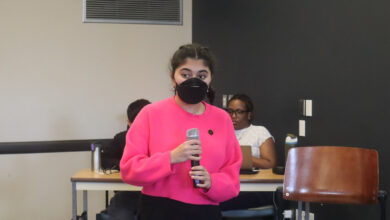Bill 27 is a necessary step for Alberta’s education system
Increased parental involvement in sexual education can lead to a better learning environment and outcomes for students.
 Kenny Eliason
Kenny EliasonIn Alberta, a new battle is emerging over control of children’s education: should it lie with parents or educators? The United Conservative Party‘s (UCP) passing of Bill 27 has ignited a fierce debate over parental authority in schools. This contentious legislation signals a significant shift in the educational landscape.
Bill 27 aims to protect parental rights and encourages their involvement in education. The bill emphasizes increased involvement regarding sensitive topics like gender identity and sexual education. However, we must consider valid concerns about its potential effects on student autonomy and inclusivity.
The bill empowers the education minister to approve educational content on gender identity, sexual orientation, and human sexuality. It also shifts from an opt-out to an opt-in procedure for sexual education.
However, critics have concerns about the opt-in requirement for sexual education. They argue it could lead to educational gaps for students whose parents do not opt-in, limiting understanding of diverse sexual orientations, gender identities, and healthy relationships. This lack of comprehensive education may hinder schools from creating welcoming environments for 2SLGBTQI+ students. It could also increase potential risks associated with unsafe sexual practices.
Contrary to critics’ concerns, increased parental involvement enhances student development when effectively regulated as outlined in the bill. Greater communication with parents can better enable their children to handle risky situations and make them more likely to use contraception. Therefore, Bill 27’s focus on regulated parental involvement empowers students to make informed choices with greater maturity.
Alberta Premier Danielle Smith defends Bill 27 as a means to protect minors’ choices and mental health while emphasizing parental involvement. Studies show that increased parental engagement boosts students’ self-esteem, enhances their school experience, and fosters a sense of safety. Engaged parents also provide teachers with valuable insights into students’ home lives, helping create an inclusive educational environment.
That said, it’s essential to recognize that inclusivity can also suffer from the addition of third-party sexual education without proper regulation. Content contradicting familial or religious values excludes some children, undermining inclusive education principles. Also, parents may perceive a school providing sexual education that contradicts other values as a violation of their parental rights to guide their children’s education, leading to parental distrust of teachers and the school system. This distrust affects children’s perceptions, creates barriers to effective learning, and ultimately hinders inclusive practices. Greater transparency in verifying educational resources could help parents understand why those resources were chosen and the benefits of those resources. Overall, this can foster greater confidence in the sexual education their children receive in schools.
While parental involvement enhances student well-being, it must be monitored to ensure it does not limit student autonomy or create educational gaps. The Alberta Teachers’ Association (ATA) has raised concerns that Bill 27 fosters fear and undermines teachers’ professional responsibilities by permitting school boards to discipline non-compliant educators. While teachers must provide students with an inclusive education, Canadian law vests authority in parents to make decisions in their children’s best interests. The bill reinforces the need to respect parents’ rights and acknowledge each family’s unique dynamics.
The University of Alberta also has a role to play in this education as well. To address potential educational gaps, the U of A, U of A Students’ Union (UASU), and student groups should take a proactive role in providing sexual education. Additionally, many students, as young adults, likely have gaps in their knowledge of sexual education. Thus, enhancing educational efforts could benefit a large number of people.
Research on parental involvement and Canadian law shows the need for Bill 27. However, the government must actively engage with both supporters and critics of the legislation. As Bill 27 is implemented, the government and stakeholders must monitor its effects and make necessary adjustments. While the educational landscape will continue to evolve, Bill 27 is a positive and essential step in strengthening parental rights within the education system.




